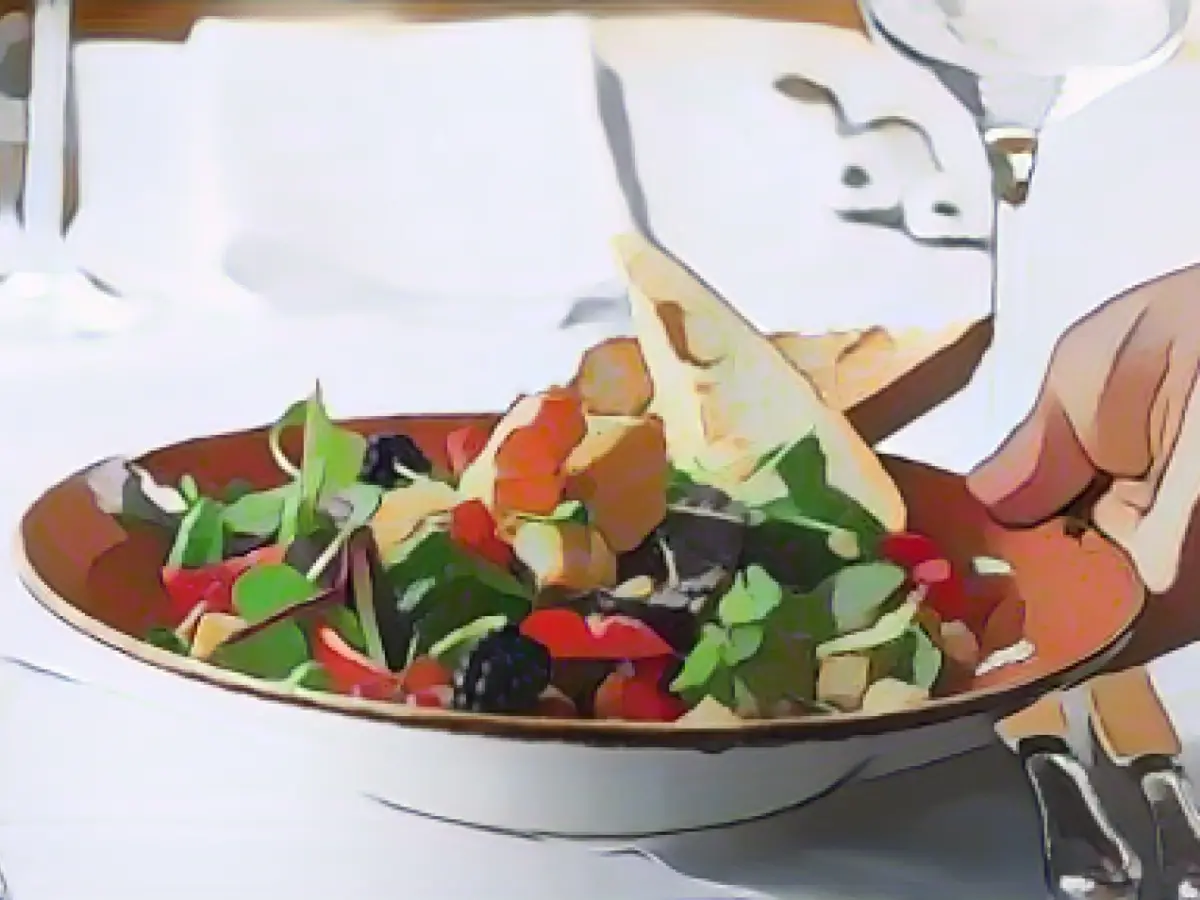Hospitality industry - Eating out will become more expensive: NGG does not expect a wave of bankruptcies
On January 1, VAT on food in restaurants will rise to the previous rate of 19 percent. People in Berlin and Brandenburg must also expect eating out to become more expensive again in the New Year. However, the Food, Beverages and Catering Union (NGG) does not expect a wave of bankruptcies in the restaurant industry as a result of a possible lack of customers. "The increase is partly unfair, and we would have liked the lower VAT rate to continue for another year. But we don't see businesses closing down in droves," Sebastian Riesner from the NGG Berlin-Brandenburg told the German Press Agency. "Anyone who gets into such a predicament because of the VAT increase that they have to close down also has other problems."
In mid-November, the coalition of SPD, Greens and FDP agreed to raise the VAT on food in restaurants back to 19 percent from January 1. Currently, 7 percent VAT is charged on food in restaurants.
The VAT reduction was introduced in mid-2020, i.e. in the first months of the coronavirus crisis. For some time, the rate was only 5% due to a further general VAT reduction, but since January 2021 it has been 7% throughout.
The reduction for the catering industry was repeatedly extended due to the energy crisis and the high inflation at times, especially for food. The German government hoped that restaurateurs would not immediately pass on the additional costs caused by energy and inflation to customers.
Nevertheless, prices in restaurants, cafés and bars have risen significantly across Germany in the past two years: according to figures from the Federal Statistical Office, "restaurant services" cost 20.5 percent more in November than in January 2021. Compared to February 2022, the month in which the war in Ukraine began, the increase is 14.6 percent.
The hotel and restaurant association Dehoga has been campaigning in recent weeks and months to prevent the VAT increase. Numerous other associations such as the German Farmers' Association, the Federal Association of the German Tourism Industry and the Central Association of the German Bakery Trade sided with Dehoga - but without success.
If restaurateurs now pass the tax adjustment on to customers one-to-one, the prices listed on menus will rise by 11.2 percent. In concrete terms, this means
- A salad that currently costs 10.70 euros will soon cost 11.90 euros.
- A pasta dish currently costing 15 euros will soon be 16.68 euros.
- The price of a steak, for example, will jump from 25 euros to 27.80 euros.
However, good service must also be worth something to people, says NGG representative Riesner. "Sometimes you got the impression that a good service was being sold for an apple and an egg," said Riesner. "A schnitzel for 15 euros with good service, good pay for employees and good raw materials - no guest can expect that."
Just a few days ago, the trade union presented a wage agreement for the hotel and catering industry in Brandenburg. In two stages, skilled workers there will receive 470 euros more per month in future. However, collective bargaining coverage is poor. "We estimate that a maximum of ten percent of companies in Berlin and Brandenburg are covered by collective agreements," says Riesner.
According to Riesner, a trained chef in Berlin who is paid according to the collective agreement earns around 2400 euros gross in the second year after training. In Brandenburg, it is currently less, but the new collective agreement will bring the levels into line.
Read also:
- A clan member is punished here
- Traffic lawyer warns: Don't talk to the police!
- Will he be convicted as Jutta's murderer after 37 years?
- He also wanted to kill his cousin
- Despite the upcoming VAT increase on January 1, the SPD, Greens, and FDP's Traffic light coalition decided to raise VAT on food in restaurants back to 19 percent from its current 7 percent.
- According to the NGG, despite the expected VAT increase causing potential customers to reduce their visits to restaurants, a wave of bankruptcies in the hospitality industry is not anticipated.
- The DEHOGA, along with several other associations, has been advocating against the VAT increase, but their efforts have not yielded any results.
- Brandenburg, like Berlin, will also see an increase in the cost of dining out due to the VAT hike, contributing to the overall expense for the hospitality industry.
- If restaurateurs decide to pass on the VAT adjustment directly to customers, menu prices are expected to rise by 11.2 percent.
- The German Press Agency reported that Sebastian Riesner from the NGG Berlin-Brandenburg believes that some businesses struggling due to the VAT increase have underlying issues unfavorable to their survival.
- The NGG presented a wage agreement for the hotel and catering industry in Brandenburg, which aims to increase the salary of skilled workers by 470 euros per month in two stages.
- Riesner highlights that the collective bargaining coverage in Brandenburg is poor, and only about 10 percent of companies in the area are covered under the agreement.
Source: www.stern.de








